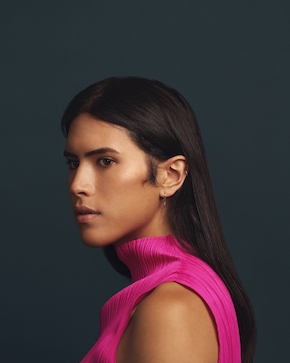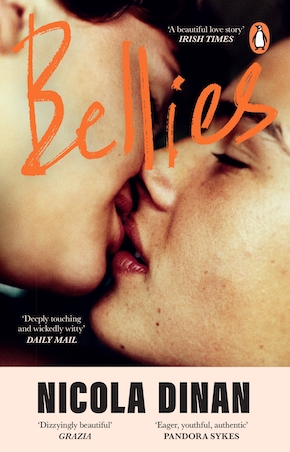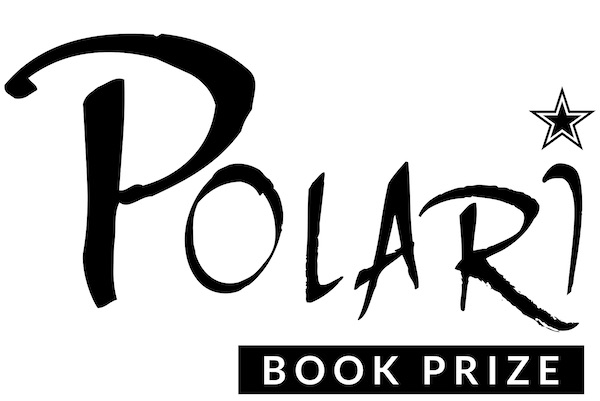That first night
by Nicola DinanI WORE A DRESS on the night I first met Ming.
A crowd swarmed the union bar, and my shoulders jostled as boys dressed as girls and girls dressed as boys pushed in and out of the front line. A tightness seized my brain, a vacuum-pack seal over its folds. I looked up. Large paper flowers hung from the vaulted ceilings, tinsel streamers stretched from one corner of the long Victorian hall to the other, music blared through the double doors opposite the bar.
The ruffled bodice of the leopard-print dress hugged my chest. Everything else Sarah had was too small for me. The dress robbed me of full breaths. Rob had fastened me into it with his strong hands, wolf-whistling in my ear when he’d let go of the metal zip. A bulb of dread had flowered in the seat of my stomach as I saw my reflection in Sarah’s mirror. I was lanky and looked as if I’d lost a dare. Sarah was behind me, standing like Supernanny even with her bare breasts duct-taped. Her voice rattled in my ear. Tonight will be good for you, Tom! Loosen up, otherwise in a room full of drag queens you’ll look like an incel. Look at Rob. She’d pointed to Rob, tall and twirling in the corner of her room in a white linen dress, the lace hem dancing against his shins, his floppy brown hair bouncing on his forehead.
Sarah had a new monkish wisdom about all things queer, but with none of the monastic silence. She’d come out after I had, but in a few short months she’d acquired a buzz cut, found a new girlfriend called Lisa, and pretended to understand Judith Butler. It was as if we’d never dated. Can you even believe me and Tom were together? It was literally six months ago, Sarah.
I looked behind me, above the heads of the crowd at the bar. Sarah was at the other end of the room, hugging a boy in a platinum wig. A corset pinched his waist; his nipples were bare. He stood on stilty heels poking out from his black flares, towering over Sarah. He looked much better than I did. More pop starlet reclaiming her image, less Liza Minnelli in sensible black loafers.
I turned back to the bar and ordered three drinks from the pale and expressionless bartender. One for Sarah, one for me and an extra third. I held them with both hands as I moved out from the crowd, lifting the triangle of glasses to take a careful sip; it restored some lightness to my head. Sarah waved me over. I set the drinks on the low table in front of them.
‘I’m Tom,’ I said.
‘Ming,’ the boy said.
I reached my hand out towards him. He leaned in for a hug. The backs of my fingers met the steel bones of his corset, its lip pressing into my chest. We were the same height with his heels on. He fanned his arm along my back in a strangely familiar way, then lowered himself, landing on the sofa cushions. Sarah sat down next to him, and I on the adjacent armchair. The edge of my knee touched Ming’s.
Up close I could see the mealy glue which held his real eyebrows down. Foundation had settled in the ridges of the laminated hairs. Two thin and inky arches took refuge above the ridge of his brow bone, framing his dark, long eyes. Thick contour disguised the round tip of his nose. Above and below the make-up was a handsome face. A delicate face.
‘Ming’s a friend of Lisa’s,’ Sarah said. ‘We met after I got back from China.’
His smile widened, pushing a small dimple into his cheek. I imagined myself poking the fleshy dent. Boop! What the fuck are you doing? A quick panic flushed through me.”
Lisa’s name aroused discomfort in me. Another reminder that Sarah was ahead, and I was behind. They had got together while teaching at a summer camp for wealthy children on the outskirts of Beijing. The last conversation between me and Sarah as a couple began to replay in my mind. This happened sometimes. The supercut spared me the minutiae and showed only the highlights, and for that I thanked the disintegrating touch of time and an active want to forget. The cringe still lingered on, though. It’d been after she’d got a place to teach at that camp. We’d sat on the bed, and she’d looked at me sternly. Why haven’t you booked your flights to Beijing yet? I just can’t. My Mandarin’s fluent, Tom, how much easier do you need the trip to be? I can’t come and visit you because I’m gay. What are you saying, Tom? I’m gay, and I think we should break up. And then my eyes had sputtered like taps on to her lap. I just don’t want you to think I’m a bad person! Okay, Tom. I could still feel the cold stroke of her fingers over my hair.
‘Ming and Lisa wrote a play together last year,’ Sarah added.
‘What was it?’
‘Gay Virgins,’ Ming said.
‘What was it about?’
‘Gay virgins.’
Ming laughed. Sarah laughed with him. His smile widened, pushing a small dimple into his cheek. I imagined myself poking the fleshy dent. Boop! What the fuck are you doing? A quick panic flushed through me. I brought my legs closer together; the blobs of leopard print sagged as the fabric gathered. I held the rim of one of the drinks on the table and gave it to Sarah. I moved the third drink towards Ming.
‘This was for Rob,’ I said. ‘Have it. I don’t know where he’s gone.’
‘Thank you.’
His eyes lingered on me as I pulled my dress up and fished the flask out of my tights, taking my bag of tobacco out with it. I leaned forward, my knee pushing a little more into his. I twisted the cap and tipped some vodka into my own drink, then into Sarah’s, and then held it over Ming’s. His red lips curved into a smile, and I splashed some into his cup. The dress felt more natural sitting next to him.
‘Cheers,’ Ming said.
Our eyes met as we sipped. Is this a vibe? Maybe it’s just polite eye contact.
from Bellies (Penguin, £9.99)
—

Nicola Dinan grew up in Hong Kong and Kuala Lumpur and now lives in London. Bellies, her debut novel, was shortlisted for the Diverse Book Awards and the Mo Siewcharran Prize, longlisted for the Gordon Burn Prize and Brooklyn Public Library Book Prize and was a finalist for a Lambda Literary Award. It is now shortlisted for the Polari First Book Prize. Bellies is published by Penguin in paperback, eBook and audio download. Nicola’s second novel, Disappoint Me, is published by Doubleday in January 2025.
Read more
instagram.com/nicoladinan
@PenguinUKBooks
Author photo by Stuart Simpson
The Polari Prize, founded by author and activist Paul Burston, is the UK and Ireland’s only dedicated LGBTQ+ book prize. The Polari First Book Prize was launched in 2011. Past winners are Fiona Mozley, Saleem Haddad, Paul McVeigh, Kirsty Logan, Diriye Osman, John McCullough, Mari Hannah, James Maker, Angela Chadwick, Amrou Al-Kadhi, Mohsin Zaidi, Adam Zmith and Jon Ransom. The Polari Prize for non-debut books was launched in 2019, and has been won by Andrew McMillan, Kate Davies, Diana Souhami, Joelle Taylor and Julia Armfield. The bi-annual prize for Children’s and YA books was launched in 2022 and won by Terry Eagleton and James Mayhew. The 2024 winners in each category will be announced at an event at the British Library on 29 November.
Read more
Buy tickets for The Polari Prize 2024
@PolariPrize



